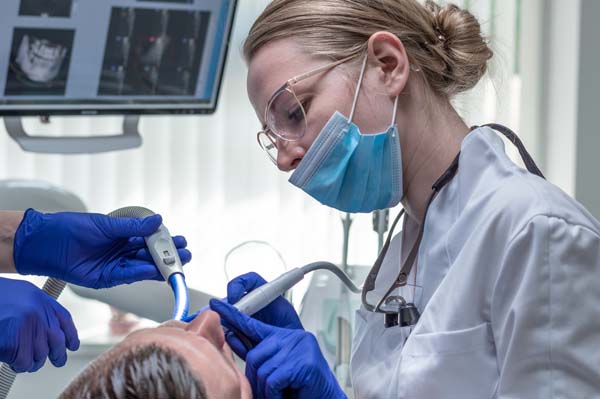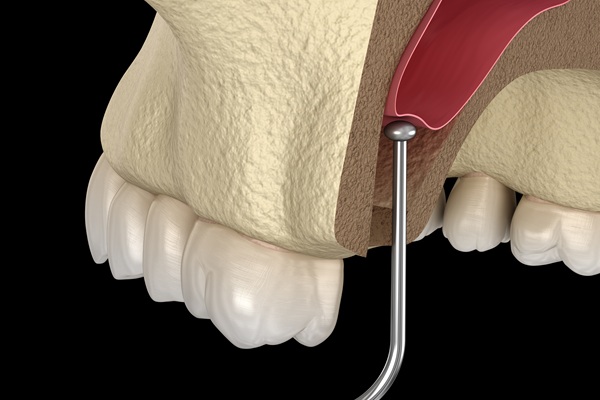The Different Types of Oral Surgery Procedures

At one point or another, anyone who has ever been to a dentist will have to undergo one or more oral surgery procedures to fix their oral health problems. Even though it might sound scary to a patient, it is something that dentist do very often, so there is no reason for concern.
Different types of oral surgery procedures
Some of the most common oral surgery procedures dentists perform include:
Tooth extraction
Tooth extraction is a very common dental surgery procedure. Extractions are performed to prevent the spread of decay and gum disease. This can be when a tooth is too damaged to be salvaged or when there is no room in the mouth for a tooth to erupt properly.
Visible teeth are extracted using forceps, but surgery is usually required if the tooth is stuck under the gums.
Dental implants
Dental implants are used to replace missing teeth. Unlike dentures, which sit on the top of the gums, implants are fused to the jaw bone. Then an artificial tooth is screwed to the top to restore the appearance of the patient’s teeth.
The implants, which act as tooth roots, also stimulate bone growth and help to preserve the patient’s facial structure.
Bone grafting
This is one of the most commonly used oral surgery procedures for people who want to get dental implants but do not have enough bone mass in their jaw to hold the implant in place. The procedure is used to take some bone from one part of the body and use it to increase the density of the bone in the jaw.
Apicoectomy
This procedure is performed if a root canal is not sufficient enough to stop the spread of the infection from the dead nerve inside a tooth. During the procedure, the dentist will remove the infected portion of the tooth roots. This is to get rid of the infection before filling the root to prevent future infections.
Corrective jaw surgery
Corrective jaw surgery, also known as orthognathic surgery, is used to correct conditions with the jaw and face. These include the misalignment of jaws and teeth. The surgery can be used to fix speaking and breathing problems as well as bite problems and sleep apnea.
Root amputation and dental hemisection
Root amputation refers to the surgical removal of one root if a tooth is multi-rooted. If one or more tooth roots become infected or there is significant bone loss around the tooth, then a dentist may refer their patient to an oral and maxillofacial surgeon for an oral surgery procedure known as hemisection. During the procedure, the surgeon will remove half of the tooth, leaving a serviceable, one-rooted tooth.
Crown lengthening procedures
Before a crown is placed on a tooth that is cracked, broken or has been weakened by decay, a dentist may refer their patient to an oral and maxillofacial surgeon for a crown lengthening procedure. This will ensure that the tooth’s structure will be able to securely hold the crown in place.
Conclusion
Oral surgery procedures are used to fix problems people have with their mouths, helping to ensure their optimal oral health. If you have oral health problems that might require surgery, schedule an appointment with a dentist to determine the best way to fix the problem.
Request an appointment here: https://brighton.drjstearns.com or call Platte Valley Oral Surgery at (303) 997-0223 for an appointment in our Brighton office.
Check out what others are saying about our dental services on Yelp: Oral Surgery in Brighton, CO.
Recent Posts
A sinus lift procedure goes by many other names, including sinus elevation, sinus augmentation, and sinus graft. It can be an important step in the process of having a dental implant placed in the upper jaw to replace a missing tooth. The procedure involves raising the floor of one of the maxillary sinuses and filling…
Facial trauma treatment differs based on the severity and location of the damage. Continue reading to learn how an oral surgeon addresses facial trauma. It can cause other medical issues, so it is important to seek treatment promptly. An oral surgeon is a face trauma specialist who is trained in maxillofacial surgery and treatment. They…
Oral bone grafting procedures can help restore mouth functionality, health, and appearance. These surgical procedures vary in type and extent. Continue reading to learn more about dental bone grafts, the surgical grafting process, and why someone might need oral bone grafts.Surgeons perform bone grafts throughout the body. Oral bone grafting occurs in the mouth, usually…
An oral pathology must receive immediate treatment. This can prevent more complications later on. Your oral surgeon can help correct any dental problem. Here are the details about each common oral pathology and its corresponding treatment.This oral pathology results from a bacterial infection because of plaque buildup. Symptoms of this condition include gum bleeding and…


